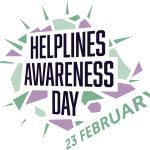
Dyslexia Scotland service marks national helpline awareness day
Dyslexia Scotland is proud to mark National Helpline Awareness Day.

The annual event is led by Helplines Partnership, the membership body for organisations that provide essential information, support, and advice via phone, email, text, or online. The campaign highlights the invaluable role helplines play in transforming lives.
According to Dyslexia Scotland’s annual Helpline statistics report, in 2024, the service responded to 1668 enquiries from people across Scotland. Since its inception 21 years ago, Dyslexia Scotland’s Helpline Advisers have had over 38,000 conversations, offering support, reassurance, and guidance to those navigating their dyslexia journey.
One caller shared their experience: “I got what I needed but also found solutions I had not expected. They made me feel understood, and I no longer felt alone after years of feeling unheard by my son’s school. I started the call feeling upset, stressed, and helpless, but I left with a plan of action. That call was transformative – it gave me the strength to keep advocating for my son, and it changed how the school engaged with us.”
A Dyslexia Scotland Helpline Adviser highlighted the importance of the service: “The Helpline is invaluable. Many of our callers simply need someone to talk to who can guide them in the right direction. Most calls are about school and education – often, parents and carers feel lost when schools don’t listen or when unexpected conversations arise. Our role is to provide clarity, reassurance, and practical steps forward. Most importantly, we remind people that they are not alone. Even if their child is the only one in the class facing challenges, there is help and there are strategies that can lead to success.”
The challenges extend beyond education. One caller spoke about the need for support in the workplace: “Unlike in schools, there is often little understanding in the workplace of how dyslexia affects day-to-day life. Employers and colleagues may think it’s just about reading and spelling, without recognising the impact on memory and information processing. This can lead to employees struggling to meet expectations or facing performance reviews due to a lack of awareness. People need a place where they can turn for guidance, support, and relevant information.”
For some, the support they received from the Helpline has inspired them to give back. One Volunteer Adviser explained their motivation for joining the team: “About 10 years ago, I found out that my son was severely dyslexic. Rather than helping, the identification seemed to create more challenges with school. The Dyslexia Scotland Helpline was a lifeline for our family – they provided advice, reassurance, and introduced us to a tutor who worked with my son for seven years. Volunteering on the Helpline felt like my chance to give back and support others in similar situations.”
Are you ready to give back? Apply to become a Dyslexia Scotland Volunteer Helpline Adviser
